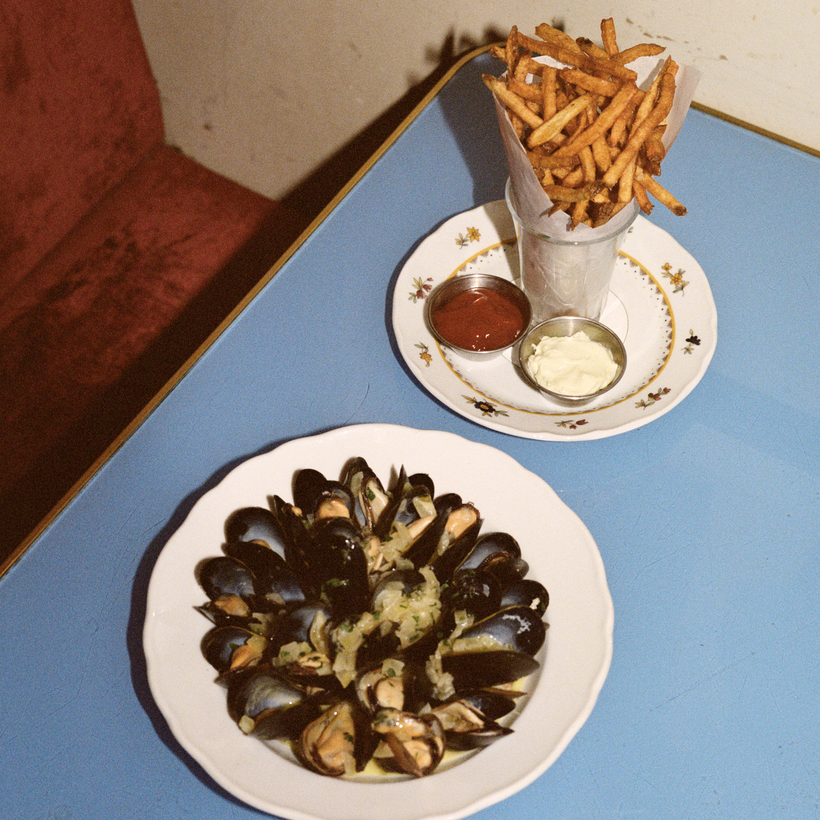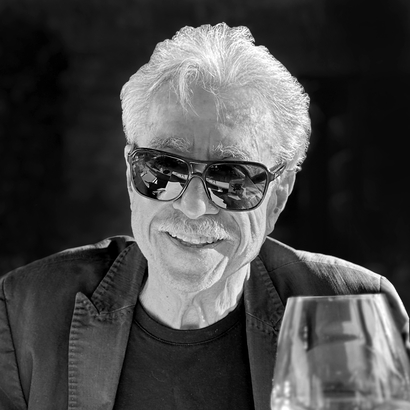They came out of nowhere, or so it seemed, two brothers from Springs, a small hamlet within East Hampton, New York. It was once a quaint farming community mostly appreciated by New Yorkers wealthy enough to collect art. Jackson Pollock and Willem de Kooning lived and worked there.
Daniel Bennett, 37, and Evan Bennett, 34, who operate two Manhattan restaurants, never expected to go into the business. Mother was a nurse practitioner; father, a lawyer. It wasn’t in their genes, though Evan, the chef in the partnership, started mixing potions in the family kitchen when he was about six. “They were probably horrible,” he recalls, “but maybe it helped me develop a palate.”
Later he worked in a cheese shop, where the owner informed him that he had become a fromager. He didn’t know what the word meant. Much later, he was Annie Leibovitz’s private chef for a summer. It was a start.
Daniel, the back-of-the-house partner, had an even more unusual path to success: “I have a healthy dose of O.C.D., which I tell people is useful if you want to work in this business,” he says. A somewhat overlooked but perhaps positive aspect of obsessive-compulsive disorder is a desire to make everything right. He adds, “If you have to work 90 hours a week, all day, constantly, O.C.D. gives you a little more stamina.”

The brothers worked in Manhattan bars and restaurants during summer breaks while attending college, Evan at N.Y.U. and Daniel at Villanova, outside of Philadelphia. One fateful day, Evan knocked on the door of a tequila bar in New York’s East Village called Mayahuel. He asked the young man who answered the door if he could speak to the owner, and the fellow replied, “Oh, I’m the owner.” He invited Evan inside, told him his story, and Evan suddenly thought, “I don’t need to have a different career. Maybe this can be my career.”
The brothers’ restaurants, located on the fringes of Greenwich Village, are named Mimi and Babs, after their grandmothers. Mimi, which opened in 2015, is remarkably tiny (seven tables) and rather romantic, with refined cuisine. Babs, which opened in 2019, is much larger (32 tables, half outside) and more casual, although the menu offers a $150 caviar service and a $52 steak au poivre.
Says Daniel, “If anybody comes up to me and asks how I could charge so much for a steak, I say, ‘Look at the car I drive, a 2008 Prius with 230,000 miles on it.’”

Both restaurants have received stars from The New York Times, primarily for cuisine, but their appeal involves more than reliable cooking. The menus are unpredictable—at Babs you can follow your caviar service with a Babs Burger, and at Mimi you might start with marinated anchovies and move on to skate wing with squid. Both bars offer cocktails prepared with obscure spirits, an exotic touch.
The restaurants are lit with light fixtures purchased from flea markets in Paris. Babs has a private booth with a one-way mirror. Anyone seated there is able to see out, but customers entering the restaurant cannot see in. Neither establishment is markedly unconventional, nor can either be classified as Manhattan-routine.
Babs is across from a busy ball field, while Mimi is on a quiet block not far away. One might think that isolation would assure Mimi a peaceful existence, but this is New York, where remoteness is a stage for criminal activity. In its eight years of existence, Mimi has survived more than 10 burglaries, to say nothing of six chefs.
“There are no guidebooks telling you how to open a restaurant in Manhattan,” says Evan. Daniel points out what they have learned: “There is no substitute for experience. I don’t care if someone tells me he has a bartender’s license. I really want to know if they can handle a rush, and do they understand margins and payroll. You have to immerse yourself in as many jobs as you can to gain knowledge. You have to figure out everything for yourself.”

Drew Nieporent, a New York legend who has opened more than 40 restaurants, says the brothers’ approach to opening restaurants makes sense. “They hit the nail on the head by opening small restaurants, which are easier to manage,” he said. “In fact, the vast majority of restaurants opening today are small. The large ones are subsidized by real-estate companies, where money is no object. You have to keep costs down, especially payrolls. With expenses rising the way they have been, you’re better off with one or two guys in the kitchen. If those guys have talent, you might be a success.”
The brothers’ strategy is to find someone working on the line at a three-Michelin-starred restaurant and offer that person a job as head chef.
They appear to have done everything thoughtfully, which did not mean all went well. Their one debilitating disaster came at the hands of a friend. Says Daniel, “We did not have a background in the business—and we paid for it.”

The friend, who had previously worked with them, offered the space in the basement of his new restaurant free of charge, the idea being that they would open a bar. “He said he would help us out every step of the way,” recalls Daniel. “We were able to get a four a.m. liquor license, which is almost impossible. We spent almost all our money on that liquor license, an architect, plus all the things you need that nobody tells you about. We even went to France and picked out antiques in Paris. We spent $50,000, almost all the money we had, and then he essentially came to us and said, ‘You guys are too young. You’re fired.’”
“We did not have a background in the business—and we paid for it.”
They asked the ex-friend to at least reimburse them for their investment. He replied, “I can’t give you any money back.”
That financial disaster did have some upside—they became more savvy about the restaurant business. The first lesson: Be prepared to do everything yourself. “Start with learning how to fix the plumbing without calling a plumber, ” says Evan. Number two: “Low rent gives you a chance to cover your mistakes,” says Daniel, “and we made a lot of mistakes.”
Number three: “Having a restaurant,” adds Daniel, “is a really hard job. Two restaurants is like having two misbehaving teenagers, always getting out of line. You constantly have to put them back in line. But they’re your kids, so you love them. You have to love them.”
Recently, the Bennetts undertook two more projects, both close to home. The family purchased the legendary Springs General Store, with the intention of cautiously modernizing a property that had been in business since the 1840s. Part of the plan is to sell organic wine out of a small outbuilding formerly used for kayak rentals.

Last July, Daniel and Evan opened their third restaurant, a café in Amagansett Square, about four miles from Springs, specializing in roti and other Caribbean-style dishes. They named it Doubles because it was so successful they had to double their food order every week.
“I was about to collapse by the end of August,” says Evan. “It was a big victory for us. You know, in Manhattan people come to restaurants for all kinds of reasons—the scene, the ambience, what circles they’re in. Here they come solely because they love the food.”
Of course, nothing is perfect in the restaurant business. “If only it wasn’t seasonal,” he sighs.
A former sportswriter for the Philadelphia Evening Bulletin, Alan Richman has won 16 James Beard Foundation Awards for his journalism on food and wine, and a National Magazine Award for feature writing


